LENA at the PESS 2024 in Dresden
The IEEE Power and Energy Student Summit (PESS) 2024 conference took place from October 21-23 in Dresden’s historical city center. The event, which was held in the cosy setting of the Bärenzwinger student club, offered students in the field of power and electrical engineering an ideal platform for in-depth discussions and networking. Representing the LENA chair were Dr. Leonardo Nogueira Fontoura da Silva, visiting researcher, along with students Renata Rodrigues Lautert and João Pedro Scherer Cipriani.
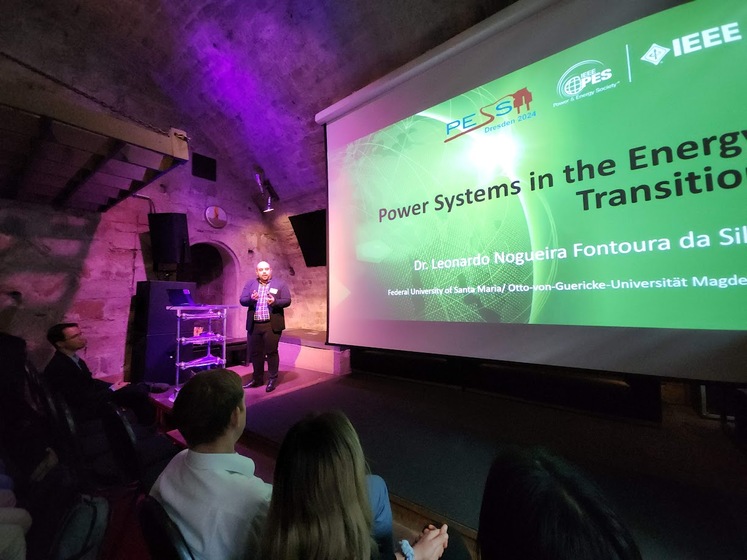 PESS6 (Bild 1 von 7) » Vorwärts
PESS6 (Bild 1 von 7) » Vorwärts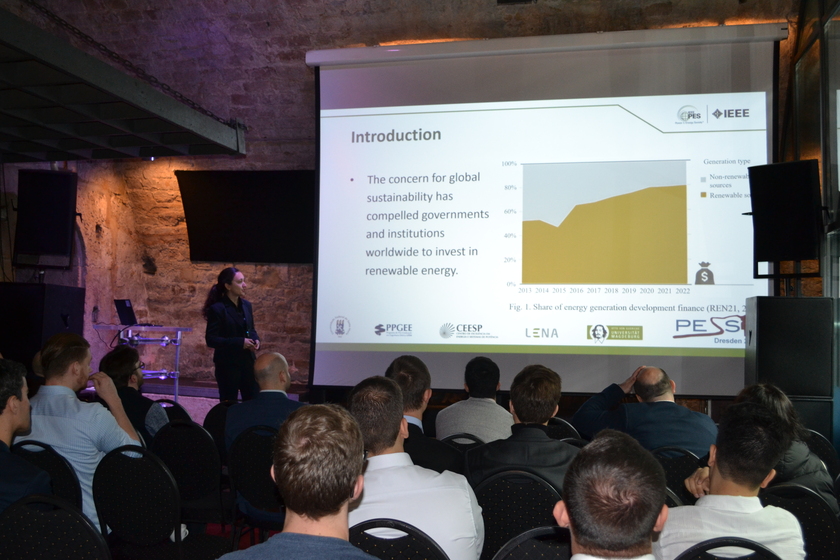 « ZurückPESS4 (Bild 2 von 7) » Vorwärts
« ZurückPESS4 (Bild 2 von 7) » Vorwärts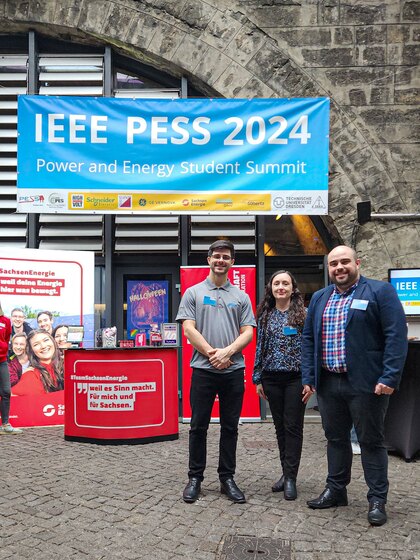 « ZurückPESS1 (Bild 3 von 7) » Vorwärts
« ZurückPESS1 (Bild 3 von 7) » Vorwärts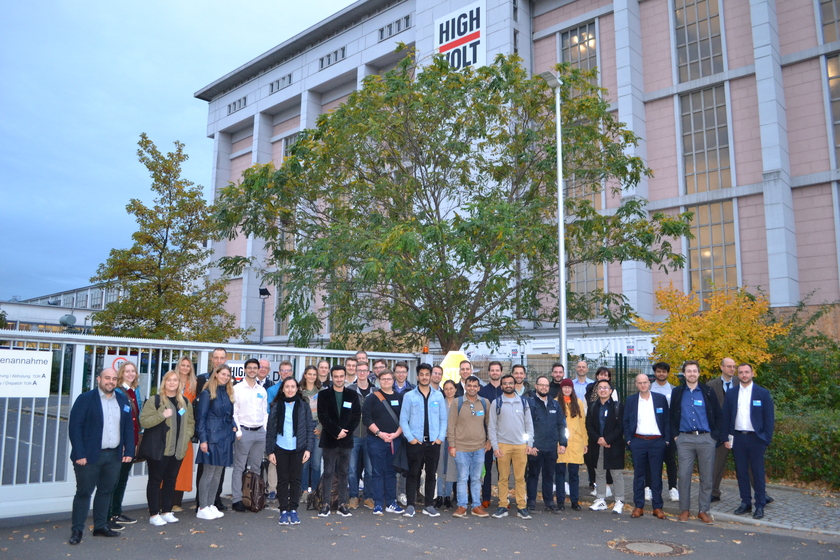 « ZurückPESS3 (Bild 4 von 7) » Vorwärts
« ZurückPESS3 (Bild 4 von 7) » Vorwärts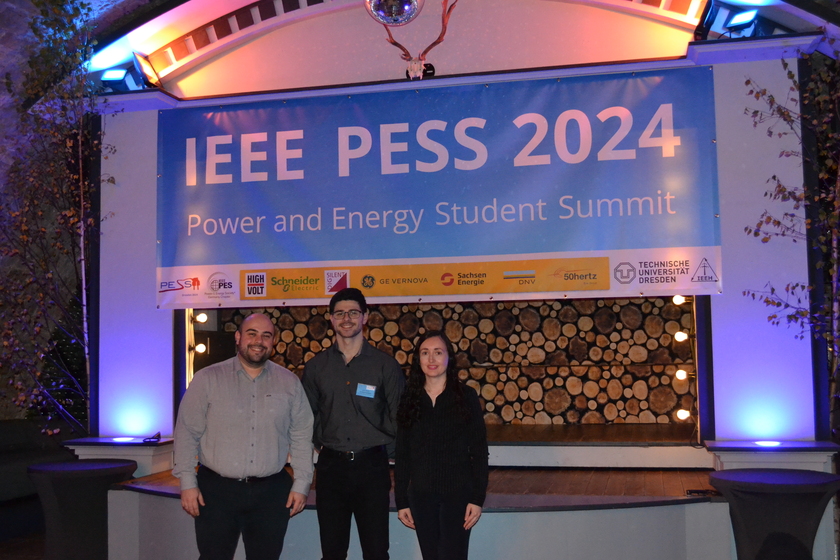 « ZurückPESS2 (Bild 5 von 7) » Vorwärts
« ZurückPESS2 (Bild 5 von 7) » Vorwärts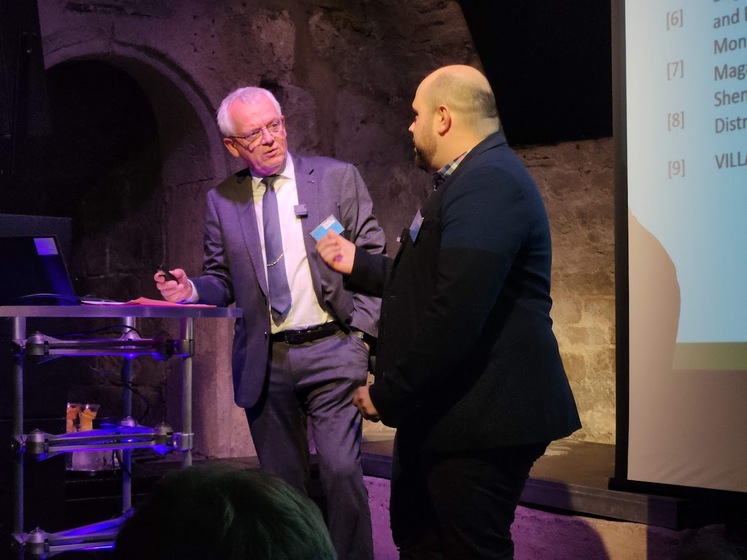 « ZurückPESS7 (Bild 6 von 7) » Vorwärts
« ZurückPESS7 (Bild 6 von 7) » Vorwärts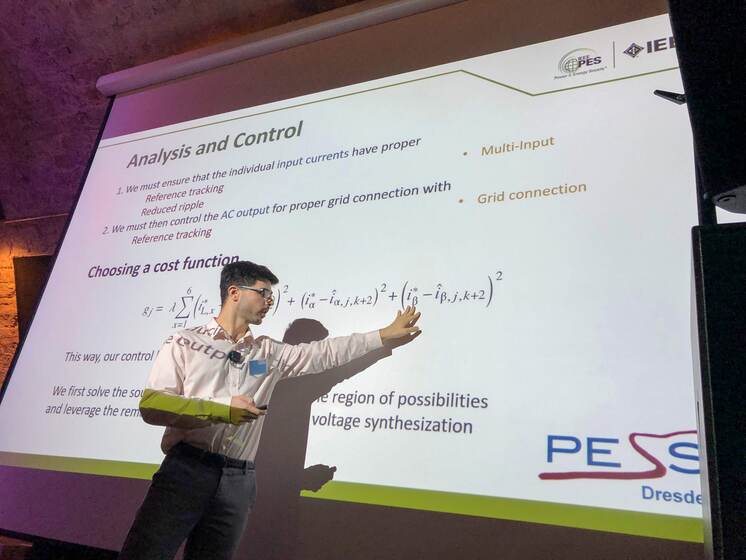 « ZurückPESS5 (Bild 7 von 7)
« ZurückPESS5 (Bild 7 von 7)
On the first day, Dr. Leonardo Fontoura gave a keynote presentation entitled “Power Systems in the Energy Transition.” The presentation focused on four main aspects: global energy transition motivation and evolution, aspects of the Brazilian Power System, some trends and developments for a near-100 % Renewable Energy Transition, and the main objectives of the OvGU and UFSM partnership.
Dr. Leonardo Fontoura also presented the paper “Analysis of the Spatial Distribution of Electricity Theft: Case Study for Delimiting the Inspection Area,” which was developed by Ms. Natalia Bastos de Sousa, a colleague from LENA. This paper looked for energy theft clusters based on the historical non-technical losses database from a Brazilian utility. It was the first step of Natalia's PhD work, focusing on determining the correlations between non-technical losses and socioeconomic variables applied for an energy theft detection model.
Ms. Renata Lautert presented her paper “Smart Contracts and Transactive Energy in Microgrid Energy Management – A Review.” It explores microgrids as a solution to enhance power system quality and flexibility, analyzing energy management systems along with transactive energy as an emerging business model. Although this model presents specific challenges, smart contracts and blockchain technologies facilitate energy transactions, increasing security and reliability for all parties involved.
Mr. João Pedro Cipriani co-authored and presented “Employing a Reduced Component Count Inverter Fed by Multiple Sources for Grid Support,” a paper primarily authored by Mr. Gabriel Cocco, another LENA chair colleague. In the context of an Inverter-Based Grid, where even small inverters are expected to provide grid services and integrate multiple sources, the paper introduces a nine-switch multi-input split-source inverter (9S-MISSI) with a reduced component count. Together with a model predictive control strategy, this topology shows promising applications for renewable energy systems.
During the conference, participants also visited the Highvolt Prüftechnik Dresden GmbH facilities. This company, with roots dating back to 1904, is known for its innovations in high-voltage testing equipment.
The conference provided an excellent environment for interaction and collaboration, allowing the LENA members to connect with other researchers in the field. The historical setting of Dresden further enriched the experience, offering attendees an opportunity to explore the city’s cultural heritage.
The LENA Chair extends its appreciation to the IEEE PES Germany Chapter for a well-planned and enjoyable conference and looks forward to future events.
*** To get out of the picture gallery, please click on the picture.






